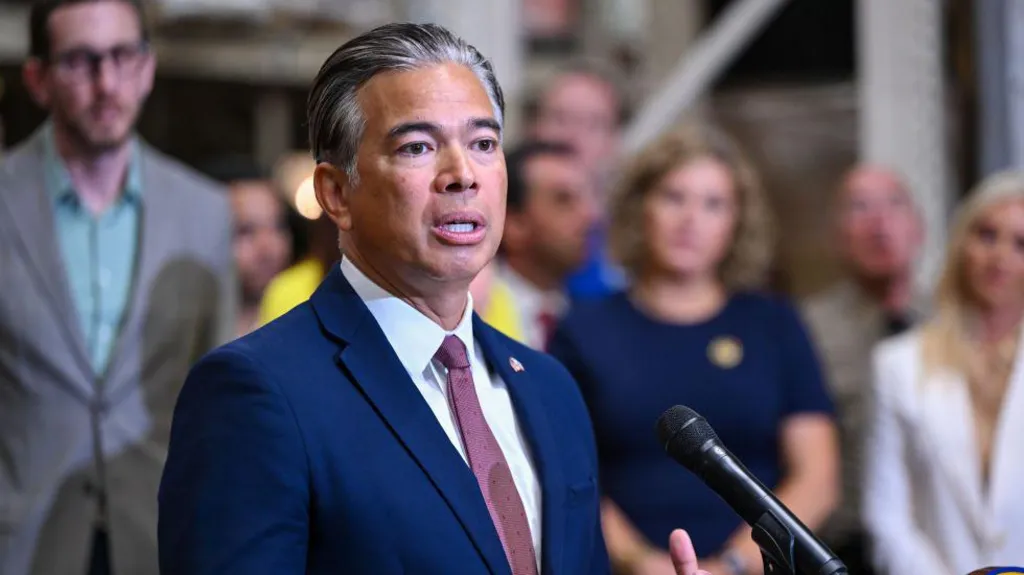California Takes Legal Action Against Exxon Over Plastics Recycling Claims
3 min read

California’s Attorney General Rob Bonta has launched a lawsuit against ExxonMobil, alleging the oil giant orchestrated a “decades-long campaign of deception” regarding the effectiveness of plastics recycling. The civil suit, filed in San Francisco County Superior Court, accuses Exxon of contributing significantly to the rampant plastic pollution problem while misleading Californians into believing that recycling would solve the crisis.
“For decades, ExxonMobil has deceived the public into thinking plastic recycling could address the plastic waste and pollution crisis, even though they clearly knew this was untrue,” Bonta stated.
In response, Exxon attributed the issue to California’s own ineffective recycling system. A company spokesperson claimed, “For decades, California officials have recognized that their recycling system isn’t effective. They failed to act, and now they seek to blame others. Instead of suing us, they could have collaborated with us to resolve the issue and prevent plastic from entering landfills.” Exxon further asserted that it had processed over 60 million pounds (27 million kilograms) of plastic waste into usable raw materials, thereby keeping it out of landfills.
This lawsuit marks a significant moment in legal history, as it represents the first time that U.S. officials have attempted to hold an oil or gas company accountable for misleading claims about plastics recycling. California is pursuing an unspecified amount of damages, which Bonta suggested could reach “multiple billions of dollars.”
“ExxonMobil lied to maximize its record-breaking profits, jeopardizing our planet and possibly our health,” he emphasized. Last year, Bonta also sued ExxonMobil and four other oil companies for compensation related to climate change damages.
The current lawsuit follows a nearly two-year investigation by Bonta’s office into the fossil fuel and petrochemical industries’ roles in global plastics pollution. ExxonMobil has been identified as the world’s largest producer of resins used for single-use plastics, according to a report by Australia’s Minderoo Foundation.
Bonta claims that Exxon’s marketing strategies portrayed its “advanced recycling” program as a viable solution to plastic waste, while the company was aware it would never process more than a minuscule fraction of the plastic waste it generated. The lawsuit, spanning 147 pages, alleges that the vast majority of plastic waste processed by Exxon was converted into fuel rather than being recycled into new plastic products.
The legal claims include violations of various state laws, such as nuisance, natural resources, water pollution, false advertising, and unfair competition, according to Bonta.
The scale of the plastic crisis is staggering; the world produces over 400 million tons of plastic annually, yet only 9% is recycled, as highlighted in a 2022 report from the Organisation for Economic Co-operation and Development (OECD). This raises critical questions about the true efficacy of current recycling practices and the motivations behind corporate claims.
As the lawsuit progresses, it highlights the ongoing tension between environmental accountability and corporate interests in the fossil fuel sector. California’s action serves as a pivotal step in addressing the systemic issues surrounding plastic production and waste management, and it could set a precedent for future legal actions against companies that mislead the public about their environmental practices.
The case will be closely monitored, not only for its implications for ExxonMobil but also for the broader petrochemical industry, as stakeholders assess the potential repercussions for corporate responsibility and environmental sustainability. As public awareness grows regarding the impacts of plastic pollution, this lawsuit may resonate far beyond California, igniting discussions on the need for more transparent and effective solutions to combat the escalating plastic crisis.